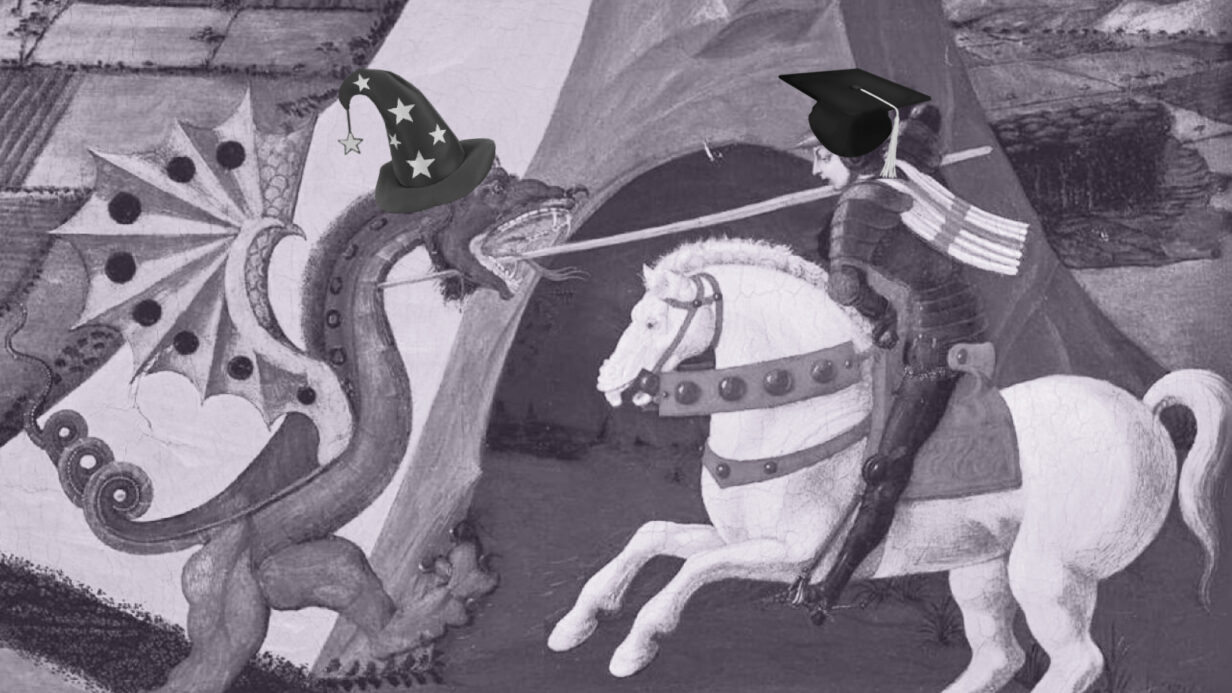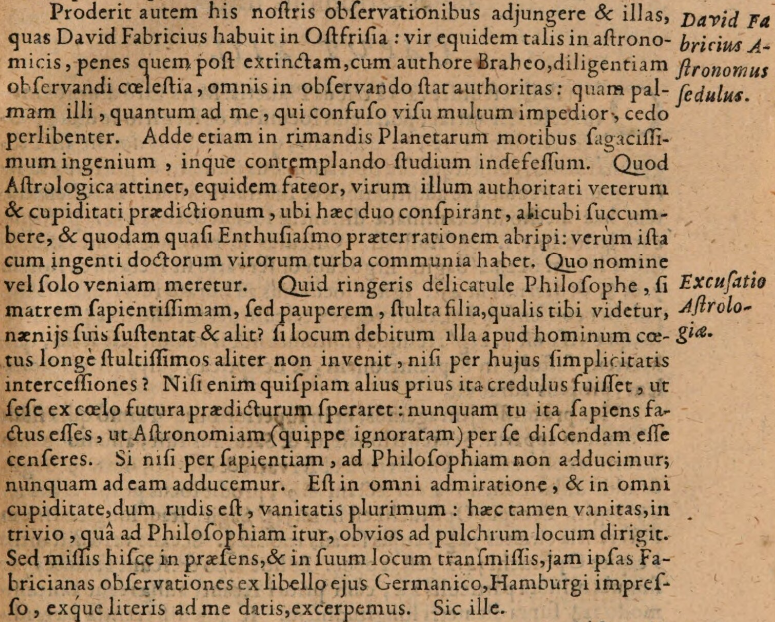
In December, the RAS Commission for Combating Pseudoscience published a new memorandum – “On the pseudoscience of astrology”. For some, this came as a surprise due to rumours on the termination of the Commission’s activities. Others were surprised by the choice of topic for the memorandum, which seemed irrelevant to the agenda. We did a kind of backstage, telling some interesting facts about the preparation of the memorandum and the work of the Commission.
1.
On the day of publication of the memorandum, even the participants expressed bewilderment at the choice of topic. “Now we can only fight with astrology.” “Does astrology need to be proven to be pseudoscience?”
Alas, it is necessary to prove. Actually, the memorandum begins with this: “every seventh Russian trusts horoscopes, and in the United States almost every third person believes in astrology.” That is, the lies of astrology are not obvious to everyone. And even those to whom it is obvious should remember the sociological theorem Thomas: “If situations are defined by people as real, they are real in their consequences.”
Of course, against the backdrop of war and dictatorship, belief in astrology looks like innocent fun. But it is precisely mass inadequate beliefs that undermine common sense and ideological guidelines, facilitating the cynical manipulation of people. Of course, no memorandum can convince the adherents of astrology or restore the common sense of an entire country. However, it can give support to those who resist mass psychosis: yes, nothing has changed, despite censorship and moral panic, astrology is still a pseudoscience, and there are people who don’t call a deer a horse.
2.
But maybe it was worth choosing something less obvious nonsense like astrology for criticism? After all, even among the thinking public, deep misconceptions are widespread, for example, about the causes of global warming or methods of containing the AIDS epidemic.
In fact, the Commission began work on a memorandum on HIV/AIDS. However, it soon became clear that the chances of making a scientifically flawless statement on hot topics were becoming less and less. Memorandum 2017 “On the pseudoscience of homeopathy” provoked a number of lawsuits against the Russian Academy of Sciences, members of the Commission and the media where they were published.
The attacks were repulsed, but at great cost and with virtually no help from the RAS. The Academy, in order to avoid new attacks, conditioned the public statements of the Commission on the approval of the Presidium of the Russian Academy of Sciences, which seeks to avoid any aggravation. Against the background of the policy of strengthening the bonds, it was clear that a memorandum on such a complex and politicized topic as the fight against AIDS was unlikely to be approved. The topic of warming is even more politicized – even among the members of the Commission, conspiratorial motives are sometimes heard.
Under normal circumstances, difficult questions would be raised, sparking academic and public debate. But the situation in society required an indisputable statement that would not meet resistance and, in fact, would allow us to remind society that common sense has not yet been abolished. And here the topic of astrology came in handy. The approval of the leadership of the RAS Expert Council (to which the Commission has now been reassigned) was obtained without complications.
3.
But criticizing astrology is just boring. The arguments have been known since Soviet times, if not earlier.
It’s surprising, but criticism of astrology continues to evolve. After all, astrology itself, as a form of business, also develops based on people’s misconceptions. In good books half a century ago, for example, in “Renix” Alexandra Kitaigorodsky or “Cosmos” Carl Sagan, the claims against astrology are such that it is not difficult for today’s experienced charlatans to dismiss them.
Moreover, in the process of preparing memorandamind, the working group had to face the fact that a number of statements that are usually considered refutations of astrology were in fact constructed methodologically incorrectly. This, naturally, does not mean the rehabilitation of astrology. It’s just that its inconsistency is demonstrated by other arguments, and not those that first come to mind.
4.
As it turned out, it is incorrect to say that astrology contradicts the fundamental concepts of the natural sciences. It simply does not contain any ideas about the mechanisms of interconnection of phenomena that could contradict something.
In the first draft versions of the memorandum there was a section on the contradictions of astrology with physics and biology. It was explained, for example, that the idea of the influence of the planets on earthly events is untenable, since the force of their influence through any of the four fundamental physical interactions is too small. This means that the “astrological interaction” must be some unknown fifth force. However, experiments also impose strict restrictions on such a fifth force, so that on the scale of the Solar System it will not be stronger than the others. Sounds logical. But…
Under certain conditions, any influence, no matter how weak, can have a significant impact. Voyager’s radio transmitter at the edge of the solar system regularly causes thousands of people to write texts about it, and millions of people to read them. Isn’t this an influence on fate?
Let’s act for a moment as the lawyers of astrology: why not assume that in the human brain a mysterious antenna receives special signals sent by equally mysterious transmitters on the planets? After all, our brains receive (albeit with the help of equipment) radio signals carrying, for example, military propaganda. With their physical force, these signals are incapable of moving a hair, but with their content they set entire armies in motion.
Another argument discussed was that the genome and physiological processes influence a person not only more strongly, but also much more selectively than any conceivable influence of distant planets at the moment of birth. Such an impact simply must be indiscriminate, because the distances between people are negligible in comparison with interplanetary ones. This reasoning also seems reasonable, until you look at two mobile phones lying next to each other, each of which responds only to its own call. But it seems that we are getting carried away.
Who could create such super-selective antennas and transmitters? Aliens? Striped devils? All this directly contradicts the primacy of naturalness that underlies science. Here the lawyer of astrology perks up: is the primacy of naturalness some kind of dogmatic philosophical principle? Why not believe in the pre-established harmony of all things? However, supersensitive and superselective antennas could also arise naturally. The cells of a living organism are created by evolution, but demonstrate the highest selectivity: a cat’s sperm will not fertilize a dog’s egg. Checkmate.
What does this mean? Are we being beaten with our own arguments on our own field? And all because the chosen strategy of criticism itself is wrong. The depravity of astrology does not at all lie in the fact that the supposed influence of the planets on the destinies of people supposedly contradicts physics and biology and it is fundamentally impossible to find any mechanism for them. Its flaw lies in the fact that it does not attempt to build or test explanatory models of postulated connections.
“One of the difficulties in writing the memorandum was to prove that it was pseudoscience, since it turned out that astrologers and pseudoscience don’t have any,” summarized this discussion by the Chairman of the Commission for Combating Pseudoscience, Academician Evgeny Alexandrov RTVI interview. “There is no attempt to justify all this, so it turns out to be some kind of stupidity. We attribute some ideas to them and we ourselves refute them.”

Academician E.B. Alexandrov, Chairman of the Commission for Combating Pseudoscience under the Expert Council of the Russian Academy of Sciences
5.
How can one not recall Johannes Kepler’s statement that astrology is the foolish daughter of the wise mother of astronomy. By the way, in the process of checking this quote with the original source, little-known details on our topic became clear.
In the draft text of the memorandum, Kepler’s phrase was quoted from one of the Soviet publications. But it soon became clear that there were several versions of the quote in different books, all of them without clear attribution. Attempts to find a link to the original source in English were also unsuccessful. Only by alternating Google with requests to the AI Claude.ai, we were eventually able to determine that the source was Chapter XII of Kepler’s treatise “De stella nova”, dedicated to the supernova 1604. The treatise was published in Latin in Prague. It is digitized and publicly available. All that remained was to retype the page and translate it from Latin, which was done well by the same Claude.
It turned out that Kepler was distracted by astrology in the middle of his treatise on a completely different topic. He makes excuses to the readers for referring to the pastor’s observations David Fabricius who was also an astrologer, and therefore did not inspire confidence. And so Kepler explains that stupid astrology still feeds its wise mother astronomy. And if it weren’t for the stupid interest in astrology, maybe we would never have grown to study astronomy. And most importantly, he asks not to neglect Fabricius’s observations just because he is interested in astrology.

Johann Kepler, “On the new star in the constellation Ophiuchus,” Prague, 1606, p. 59 / Johannes Kepler, De stella nova in pede Serpentarii, Praga, 1606, p. 59
“It will be useful to supplement our observations with those made by David Fabricius in Ostfriesland – a man truly so outstanding in astronomy that after the death of Tycho Brahe he alone has all authority in the matter of astronomical observations. I willingly concede this primacy to him, since I myself suffer from poor eyesight. In addition, he has a keen mind in studying the movements of the planets and is tireless in contemplating the heavens. As for astrology, I admit that this man sometimes succumbs to the authority of the ancients and the passion for prediction, when these two factors converge, and he is, as it were, seized by an enthusiasm that leads him away from rational grounds. But he shares these weaknesses with many outstanding scientists. And for that reason alone it deserves forgiveness. Why do you grumble, pampered philosopher, when a stupid daughter, as astrology seems to you, supports and feeds with her babble the wisest mother, even a beggar, if she does not find her rightful place among the crowd of people so far from wisdom, except through the intercession of this simple-minded one? For if someone had not previously been so gullible as to hope to predict the future from the heavens, then you would never have become so wise as to understand that astronomy (after all, it is unknown) must be studied for its own sake. If only wisdom had not led us to philosophy, we would never have arrived at it. In every admiration and in every passion, while they are uneducated, there is too much vanity; however, this vanity at the crossroads leading to philosophy directs those it meets to a beautiful place. But let’s leave this aside for now, putting it in its proper place, and move on to Fabricius’s observations themselves, which I gleaned from his German book, published in Hamburg, and from the letters sent to me. These are his words…”
From these reservations of Kepler it becomes clear that already more than four centuries ago the very practice of astrology was perceived by many educated people as a discrediting fact that undermined confidence in the qualifications of the researcher. And this also sounds like an attempt at self-justification by Kepler, who, despite all the understanding of the stupidity of astrological forecasts, made them because it allowed him to earn money to practice his favorite astronomy.
6.
With careful scientific testing, it turns out that the reliability of astrological forecasts and characteristics does not exceed random guessing. But it is still impossible to convince the convinced with such research.
In science there is no court that makes final verdicts. Therefore, any results can be challenged ad infinitum if desired. Of course, their scientific reputation suffers from this, but astrologers have none, and they have nothing to lose (except their beliefs and/or business). So it would be naive to hope that scientific works will convince those who are interested in maintaining their beliefs.
In some cases, even the opposite effect is possible. Still, a labor-intensive check of obvious nonsense – not a very attractive job for serious scientists. At the same time, it seems easy for beginners or those who want to publish quickly. As a result, in this topic there is a fairly high chance of encountering weak works. When preparing the memorandum, we had to weed out a number of such articles, although they seemed to confirm the thesis about the failure of astrology.
It is even worse when, due to an insufficiently thorough approach, the authors mistakenly obtain a result that testifies in favor of astrology. Astrologers immediately raise it to the top, as happened with the study mentioned in the memorandum by Michel Gauquelin, who allegedly discovered the influence of Mars on athletes. Subsequent criticism with analysis of errors no longer attracts as much attention as the original publication. In addition, in response to this criticism, astrologers release their own criticism, which outwardly also looks like a scientific article. All this has been dragging on for years, and those who are not in the know get the impression that there is a meaningful scientific discussion on the issue of the effectiveness of astrological methods.
This shows that the problem of confronting pseudoscience cannot be viewed as a dispute about scientific correctness. Such disputes are possible between scientists who value their reputation, share the norms of scientific ethics and are interested in obtaining knowledge, and not in defending their opinion at any cost. When faced with strong objections, they admit their mistakes and begin to look for new ways. Polemics with pseudoscience are of a completely different kind. It lies in the socio-psychological sphere, is conducted in public and is motivated (at least on the one hand) by extra-scientific interests. Therefore, scientific argumentation by itself often does not achieve the goal here, and it is necessary to turn to the methods of public polemics.
7.
The issuance of memoranda by the Commission was conceived precisely as a method of public debate, but while maintaining the academic quality of execution. But this turned out to be much more labor-intensive than originally expected.
Memoranda as a format for the Commission’s publications were proposed at the end of 2015. Then they were seen as short statements of 1-2 pages, which were prepared by a couple of people: a specialist author and an editor-journalist. It was expected that the memorandum could be prepared in a few days.
However, this is the first such document – about the pseudoscience of dermatoglyphic personality testing – grew to 14 pages with 6 appendices on another 30 pages. Its preparation lasted almost six months, and two dozen people took part in it.
This time the work was carried out intermittently and lasted almost two years. But it was worth it: within two days after the publication of the memorandum, about 90 different media outlets reported about it. I would like to hope that the memorandum “On the pseudoscience of astrology” will become a contribution to the latently growing demand in Russia for adequacy, which has been systematically undermined in recent years decades.
Text: Alexander Sergeev